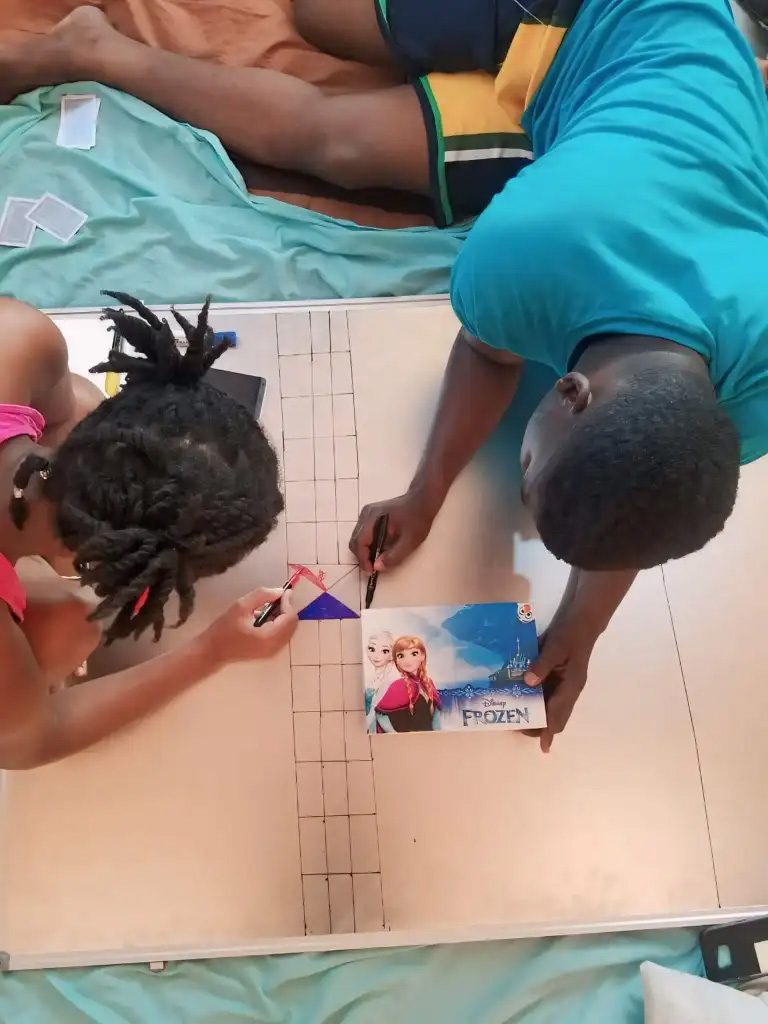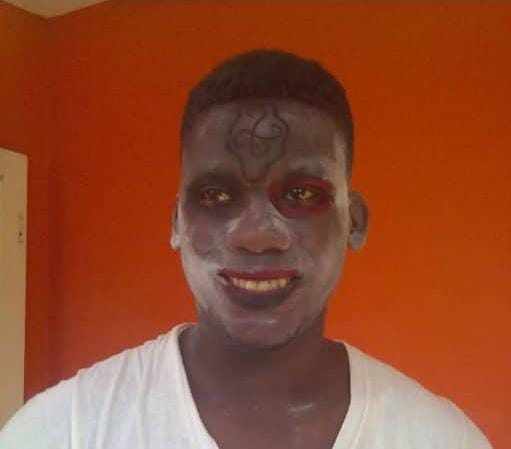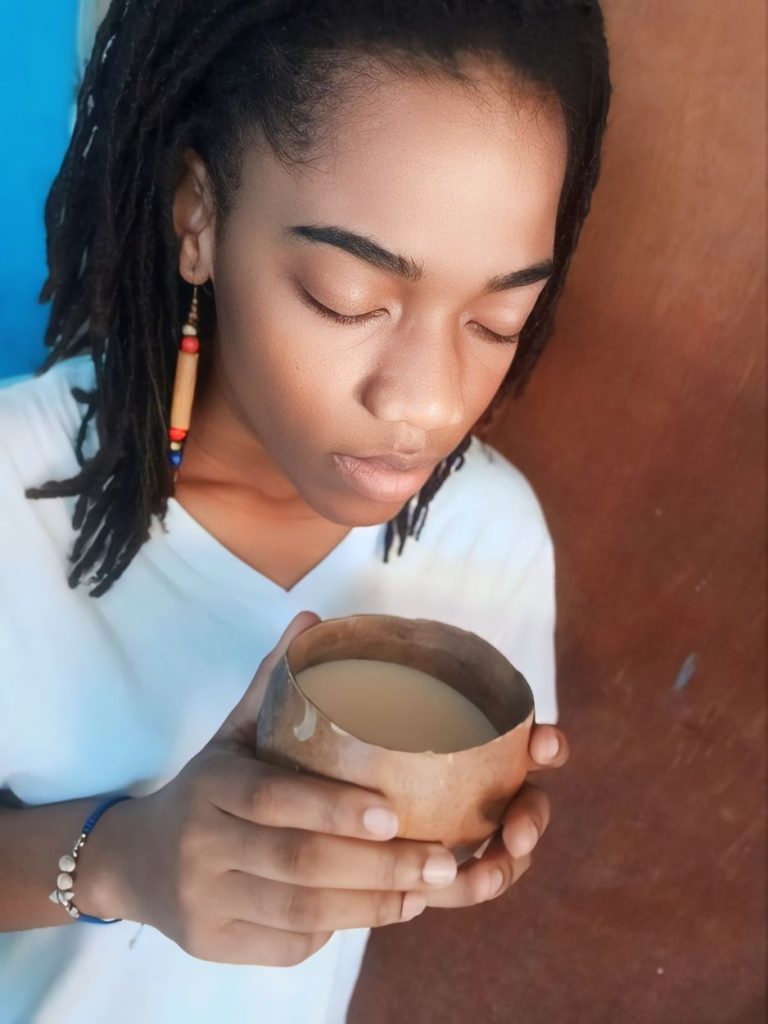Two therapists turn to voodoo roots for the benefit of LGBT+ Haitians
Moïse Manoël-Florisse, is an African-Caribbean online journalist keeping an eye…
‘I had no desire to serve my community until I embraced voodoo culture.’

While Haiti is experiencing political instability, with a new international mission due to be launched shortly to restore civil and social peace in the capital, initiatives by local Haitians are working to help vulnerable populations, particularly those who have not been able to emigrate, including LGBT+ people.
For Erasing 76 Crimes, we interviewed Carelle, a psychotherapist, and Garal, a psychologist, on the topic of Sans Visage, a support program they established for sexual and gender minorities. This innovative social health project has its roots in the island’s rich cultural history of voodoo at a time when Islam is taking root in all four corners of the country.
They are identified here only by their first names for their safety amid the current dangers of Haiti.
Erasing 76 Crimes: How does voodoo explain your involvement in social action as Haitian psychologists? Why are you interested in vulnerable groups, including LGBT+ people?
Carelle: If I am a Haitian psychotherapist involved in social action, I owe it first and foremost to the voodoo culture native to my country.
In fact, I grew up in a Christian family, but although I was devoted as a young girl in the church choir and very pious, I found this religion exclusive and I no longer had any faith or desire to invest myself in the service of my community, until I embraced the voodoo culture during my psychology studies.
For the time being, I haven’t completed my initiation into voodoo but, in the Christian religion, I find that there is an intrinsic violence. It’s expressed in the rejection of the “pagan”, the rejection of sexual and gender minorities, the marginalization of women, while voodoo embraces all forms of life.
Also, in voodoo, you find a cult organization where we are all servants dedicated and devoted to the community, and I find there a human warmth that is totally conducive to the way my mind works.
Garal: My connection with voodoo was initially fortuitous and was the result of an encounter between myself and the aunt of a classmate, when I was playing with my friend after school on the way to her house. This lady had ties with the Lakou Souvnans, one of the three great sacred temples that maintain the voodoo tradition in Haiti. Coming from a Christian family myself and a little intrigued by the ancestral rites of my country, I started to ask her questions.

My curiosity led me to deepen my knowledge of the living world around us, such as botany, because voodoo invites us to protect and preserve the nourishing resource that keeps us alive. In this sense, voodoo is a relationship between us and the rest of the living world that must be based on a balance that must not be broken if we want the great ecological cycles that sustain life to continue. In voodoo, we go so far as to consider trees as our neighbors.
At the same time, when I was a teenager, I met a young homosexual who was a member of my choir, and I soon realized that, for him, it was quite difficult to maintain a balance between his sexual orientation and his presence in the church, something that doesn’t exist in voodoo, where there are homosexual loas [deities of the voodoo cult].
Living between two cultures with diametrically opposed values, I turned to psychology at university, where I wanted other young people with questions to be able to meet in discussion groups such as “Haiti and its young people” and “La place”. The latter focused on issues of cohabitation between heterosexuals and homosexuals.
Today, as an extension of the talking circles we set up during our studies, Carelle and I are launching a program aimed at promoting tolerance and inclusion in Haiti for the LGBT+ communities and others through the Sans Visage initiative. [In English, “Sans Visage” means “Faceless”.]
Carelle: The aim is to promote self-esteem, self-acceptance and acceptance of others by talking about and expressing our experiences of discrimination, which can affect anyone, as a first step towards ensuring that everyone feels concerned, whatever their gender identity or gender expression, or even their sexual orientation.

We call this initiative “Faceless”, because we believe that expressing oneself is only possible in a form of anonymity, using a balaclava to hide one’s face completely. The aim is for people to take it off progressively as they feel able to relate to others, taking into account the stories of their different lives.
The main challenge to begin with is always finding a safe place to meet in these times in Haiti, but it’s still possible, and that’s why we’re in the far north of the country, currently in Fort-Liberté, a few kilometres from the border with the Dominican Republic.
Finally, more generally in our country, Garal and I have observed a lack of consideration for the culture of Haitians in psychological treatment, because sometimes the Haitian practitioners themselves have a lack of knowledge of voodoo, which they reduce to a few clichés. And our initial training doesn’t make up for this either.
Against this backdrop, we want to develop expertise in endogenous ethno-psychology in Haiti, while noting that, in terms of public health, psychological consultations are still the poor relation in the health care system, unlike services for HIV/AIDS sufferers, for example.
To conclude our diagnosis, in the long term we would like to see a more holistic approach to psychology in Haiti,and avoid waiting for trauma or tragedy to occur before offering consultations. In fact, we think that upstream, from childhood, we could develop the psycho-social skills of our young people, through workshops, with a view to fostering an inclusive and tolerant society that is positive about otherness.
If we want Haiti to evolve, it’s up to us to educate our young people so that we don’t perpetuate the same stigmas that hold back the lives of sexual and gender minorities. And that is possible.
Erasing 76 Crimes: Do you take into account the cultural change underway in Haiti with the emergence of Islam and the creation of over 50 madrassas [Islamic schools] dotted around the country?
Garal: At the moment they’re a very small minority in the country and we’ve been seeing them for about 10 years. At the moment, they maintain cordial relations with the voodooists. Haitian Muslims, on the other hand, have more conflict with certain Christians”.
Carelle: There are indeed a lot of schools for learning Islam in Haiti and I see this as a challenge for the future of our nation, because we know that Christianity and Islam are extremely exclusive religions that claim a form of primacy and do not accept coexistence with other forms of worship other than their own”
Garal: In the past, there have been crusades against the voodooists on the island, with innocent people being massacred just because they held beliefs other than those of the so-called revealed monotheistic religions. As far as we’re concerned, you’ll find that none of our people have ever murdered anyone on the basis of the faith they profess.




